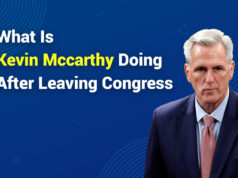The leader of Great Britain during World War II played a pivotal role in shaping the course of the war and the future of Europe. As the country faced unprecedented challenges, the leadership of Britain was crucial in determining the survival of democracy and the defeat of Nazi Germany. The question of who was the leader of Great Britain during WWII is central to understanding the nation’s wartime strategies and resilience.
In this article, we will explore who held this critical position, their responsibilities, and the impact of their leadership on both Britain and the world. We will delve into the historical significance of the British Prime Minister during the war, with a focus on Winston Churchill, the most well-known figure associated with this role.
Who was the leader of great britain during ww2?
The leader of Great Britain during World War II was Winston Churchill, who served as Prime Minister from 1940 to 1945, leading the country through its most challenging period. Churchill’s leadership, determination, and speeches rallied the British people and inspired the Allies. His strategic decisions, such as maintaining Britain’s resistance against Nazi Germany and leading the British delegation at the Yalta Conference, were crucial in shaping the war’s outcome.
The Role of Winston Churchill as Britain’s WWII Leader
Winston Churchill, one of the most iconic leaders of the 20th century, served as the British Prime Minister during most of World War II. His leadership became synonymous with resilience, hope, and determination, especially during Britain’s darkest hours. Churchill first became Prime Minister in 1940, a time when Britain stood alone against Nazi aggression after the fall of France. His powerful speeches, particularly the famous “We shall fight on the beaches,” rallied the British people, giving them the strength to resist and persevere, even when the situation seemed bleak.
Churchill’s leadership was not only about inspiring speeches; it was also grounded in military strategy and diplomacy. He played a pivotal role in forming critical alliances with the United States and the Soviet Union, which were key to the success of the Allies. As Britain’s leader, Churchill made crucial decisions regarding military strategy, resource allocation, and international negotiations. His ability to inspire, unite, and make tough decisions under pressure solidified his place as one of history’s most outstanding wartime leaders.
The British Prime Minister’s Role During WWII
During World War II, the British Prime Minister played a crucial role in guiding the nation through one of its most challenging periods. Winston Churchill, as Prime Minister, was central to these efforts, making key decisions that influenced the course of the war.
Leadership and Strategic Management
As Prime Minister, Winston Churchill was responsible for overseeing Britain’s wartime efforts. This included managing vital resources, making critical military decisions, and collaborating with Allied powers. Churchill had the vital task of ensuring Britain remained steadfast, serving as a symbol of hope for both the British people and the world. His leadership was essential in maintaining national morale and ensuring that Britain continued to resist Nazi forces despite overwhelming challenges.
Key Decisions and Alliances
Churchill’s decisions were pivotal in shaping the outcome of World War II. One of his most notable actions was to continue fighting against Nazi Germany even after Britain stood alone in Europe following France’s collapse in 1940. His determination inspired the British people and galvanized the Allies. Churchill also recognized the importance of building strong alliances, and his strategic decisions to form partnerships with the United States and the Soviet Union were crucial in the eventual defeat of the Axis powers. These alliances played a key role in shifting the momentum of the war in favor of the Allies.
The Impact of Churchill’s Leadership on Britain and the World
Winston Churchill’s leadership during World War II had a profound impact not only on Britain but also on the global stage. His decisions, speeches, and vision shaped the outcome of the war and influenced the post-war world order.
Impact on Britain
- Churchill’s leadership united Britain during its darkest days, providing a strong sense of purpose and determination.
- His powerful speeches, such as “We shall fight on the beaches,” inspired the British people to remain resilient throughout the war.
- Churchill’s leadership maintained British morale and encouraged them to continue fighting, even when the odds seemed insurmountable.
- Beyond the war, Churchill played a key role in shaping post-war Britain, ensuring it remained a crucial player in global reconstruction and peace-building efforts.
Impact on the World
- Churchill’s influence extended far beyond Britain, with his vision for a post-war world focused on international cooperation and preventing future conflicts.
- He was instrumental in the creation of the United Nations, a vital institution for fostering peace and diplomacy worldwide.
- Churchill’s strategic decisions, like his involvement in planning D-Day, played a crucial role in the Allied victory and the eventual defeat of Nazi Germany.
Winston Churchill’s Leadership Resilience and Strategic Brilliance
His unwavering determination and strategic brilliance defined Winston Churchill’s leadership style. He inspired people with his powerful speeches, but his strength also lay in his deep understanding of military strategy and international diplomacy. Churchill’s resilience was truly tested during the darkest days of WWII, particularly during the Battle of Britain and the Blitz, when London and other cities faced relentless bombing by the Luftwaffe.
Despite these challenges, Churchill remained resolute, making tough decisions to secure Britain’s future. His leadership was marked by pragmatism, knowing when to pursue military action and when to negotiate for peace. Churchill’s ability to adapt and think strategically in moments of crisis helped guide Britain through its most difficult times. His balance of resilience and tactical brilliance made him one of history’s most influential figures. For leaders seeking to improve their own resilience and adaptability, the guidance of experts like Pedro Paulo business consultant offers valuable insights.
The Legacy of Winston Churchill as Britain’s WWII Leader
Winston Churchill’s legacy as the leader of Great Britain during WWII is immeasurable and continues to resonate globally. His leadership not only played a key role in defeating Nazi Germany but also helped shape the post-war world order. Churchill’s vision for a united Europe and his efforts in establishing international cooperation through institutions like the United Nations had a lasting impact on global politics and diplomacy.
Churchill’s resilience in the face of overwhelming adversity, combined with his strategic brilliance, ensured Britain’s survival and success. His ability to unite a nation under siege and rally international support against tyranny marked him as one of the 20th century’s most influential leaders. Reflecting on who was the leader of Great Britain during WWII highlights Churchill’s extraordinary capacity to lead during a crisis, overcoming immense challenges to help shape a free and peaceful world. His legacy is a testament to his determination, vision, and unwavering commitment to both Britain and the global cause for liberty.
Deduction
Winston Churchill’s leadership during WWII was crucial for both Britain’s survival and the success of the Allied powers in defeating Nazi Germany. His leadership was marked by unwavering determination, strategic brilliance, and the ability to inspire a nation under siege. Churchill’s decisions, actions, and iconic speeches not only rallied Britain but also resonated globally, shaping the political landscape for years to come. Reflecting on who was the leader of Great Britain during WWII goes beyond a historical inquiry—it’s a recognition of one of the most influential leaders in modern history. Churchill’s legacy is defined by his resilience, vision, and leadership during one of the most challenging periods in history.
FAQ’s
Who was the leader of Great Britain during WWII?
The leader of Great Britain during WWII was Winston Churchill, who served as Prime Minister from 1940 to 1945 and again in the 1950s.
What were Winston Churchill’s most significant decisions during WWII?
Churchill’s key decisions included continuing the fight against Nazi Germany, securing alliances with the United States and the Soviet Union, and leading Britain through the Blitz.
How did Winston Churchill inspire Britain during WWII?
Churchill inspired Britain with his powerful speeches, resilience, and commitment to victory. His speeches, like “We shall fight on the beaches”, helped boost morale during difficult times.
What was Churchill’s role in the post-war world?
Churchill played a key role in shaping the post-war world, advocating for the establishment of international institutions like the United Nations to prevent future conflicts.
Why is Winston Churchill considered one of the most outstanding leaders of the 20th century?
Churchill is considered one of the most outstanding leaders due to his leadership during WWII, his ability to inspire a nation, and his strategic decisions that helped lead to the defeat of Nazi Germany.














